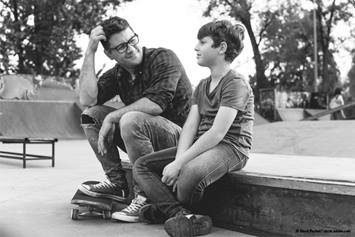Early Puberty in Children
Male puberty usually begins at about age 12. Female puberty is at about age 10. Sometimes, though, puberty can start earlier and before signs show.
What Is Early Puberty in Children?
Puberty (PU ber ty) is the time when a child’s body and mind start to grow and mature into an adult. Male puberty usually begins at about age 12. Female puberty is at about age 10. Sometimes, though, puberty can start earlier and before signs show. When male puberty starts before age 9 and female puberty before age 8, it is called precocious (pre KOH shuss) or early puberty.
What Are the Causes of Early Puberty in Children?
Puberty begins when one part of the brain (the hypothalamus) tells another part of the brain (the pituitary gland) to release hormones. These hormones tell the body to make sex hormones- testosterone in males and estrogen in females.
For most children, early puberty starts for no known reason. It can run in families. Sometimes there is a problem in the brain, such as an injury, a tumor or an infection. Early puberty can also be caused by a problem in the sex glands (testes or ovaries), the thyroid gland or the adrenal glands.
What Are the Signs and Symptoms of Early Puberty in Children?
Children with early puberty can show one or more of these signs:
- rapid height growth - a growth spurt
- pubic or underarm hair
- adult body odor
- acne
There may be other signs, depending on whether the child is born male or female.
Male Puberty:
- facial hair
- growth of testicles and penis
- voice deepening
Female Puberty:
- breast development
- vaginal discharge or bleeding
The major concerns of early puberty are:
- When puberty is finished, the bones stop growing. Even though a child may be taller than others their age, they may not reach their full adult height.
- Early puberty can be hard for a child to deal with emotionally and socially. They may not feel that they fit in. They might become depressed, moody or aggressive. They may get teased.
How Is Early Puberty in Children Diagnosed?
Your child's health care provider or a pediatric endocrinologist (a specialist in growth and hormonal disorders in children) may order:
- blood tests to check hormone levels.
- X-rays of the hand, called a bone age X-ray, to see if the bones are growing too fast.
- other tests such as CT scans, magnetic resonance imaging (MRI) and ultrasounds to look for tumors, abnormal growths or other problems.
How Is Early Puberty in Children Treated?
The goal of treatment is to stop or reverse early puberty. This is so your child can grow to their full adult height and delay puberty until the right age. The type of treatment depends on what is causing the problem. Your child may need:
- medicines to stop the pituitary from releasing hormones. This can delay sexual development.
- treatments to correct other problems causing the hormone imbalance.
Sometimes no treatment is needed.
Caring for Your Child
- Using simple and honest words, talk to your child about what is happening. Tell them that signs of puberty are normal for older children and teens, but their body has started developing a little too early.
- Focus on their success in school, sports and other activities rather than on their appearance.
- Watch for signs of emotional stress, teasing by others or depression. Warning signs can be poor grades, problems at school or loss of interest in daily activities.
Helping Hands Patient Education Materials
Written and illustrated by medical, nursing and allied health professionals at Nationwide Children's Hospital, Helping Hand instructions are intended as a supplement to verbal instructions provided by a medical professional. The information is periodically reviewed and revised to reflect our current practice. However, Nationwide Children's Hospital is not responsible for any consequences resulting from the use or misuse of the information in the Helping Hands.
HH-I-288 | ©2011, Revised 2021, Nationwide Children’s Hospital


